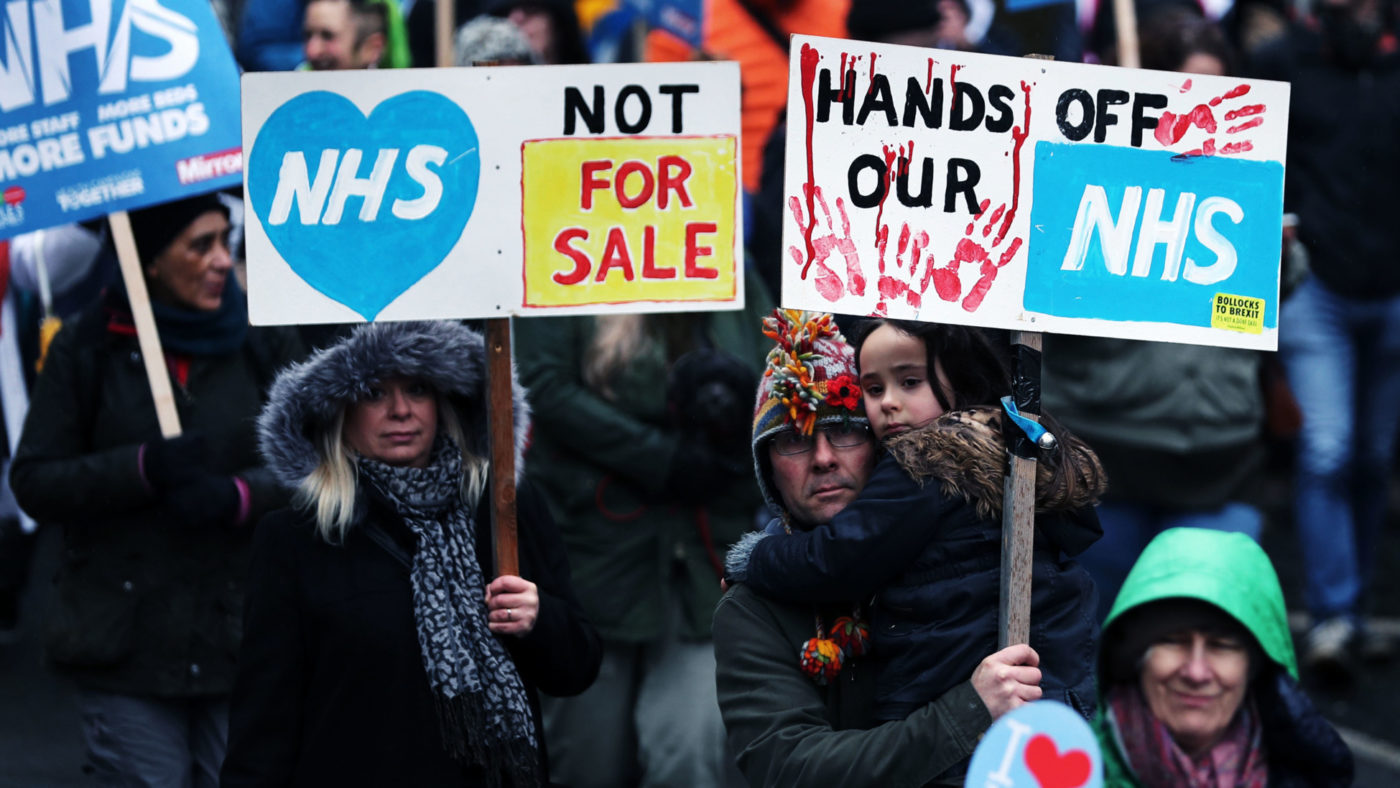On the 70th anniversary of the foundation of the NHS, I took part in an episode of BBC Radio 4’s Moral Maze show.
I expected it to be quite confrontational, but it ended up being more of talking past each other than anything. I argued that the NHS was not a particularly good healthcare system, in terms of the outcomes it produces. My main opponent, Giles Fraser, did not specifically dispute that. Instead, he made a communitarian case for the NHS.
For Fraser, the NHS is not primarily a healthcare system, but the modern-day equivalent of a maypole: the sort of institution that everyone can merrily dance around. Its main purpose, then, is not to provide healthcare, but to foster a sense of national unity. It is a national team-building exercise, which also happens to provide a bit of healthcare on the side.
I thought it was a decent argument. Sure: if, like me, you take a less sentimental, and more utilitarian view of healthcare, you will often find the quasi-religious reverence that the NHS attracts irrational and frustrating. But this is really just the flipside of the point Fraser made. The NHS arouses such strong passions precisely because it is a sacred institution. It could not fulfil that role if it were just another institution that we judge by its outcomes, and that we are allowed to criticise. It would then just be like the Office for National Statistics, or the Water Services Regulation Authority. Surely, in these polarised times, it is a good thing that there is at least one institution that the whole nation can rally around?
And yet, there is a major downside to all this. A unifying institution can quickly turn into the exact opposite, and become deeply divisive, when one group in society begins to suspect another group of harming that institution. And this is what is happening now.
For a start, the socialist Left has made a habit of accusing their political opponents of harbouring secret plans to privatise the NHS (or “sell it to Donald Tump”, as the most recent incarnation goes), and replace it with a system of Wild West medicine.
Such conspiracy theories have always existed – they are probably as old as the NHS itself – but in recent years, we have reached new levels of hysteria. Nowadays, an NHS organisation cannot buy a pencil from a private company without triggering a flurry of furious articles in the Guardian, the Independent, the Morning Star, Evolve Politics and the Canary about how this is supposedly “evidence” that NHS privatisation is in full swing.
None of this has any basis in reality. The proportion of the UK healthcare budget that is spent on private providers is tiny by international standards, and it shows no signs of increasing. And yet, large numbers of politically engaged people have talked themselves into a permanent state of hysteria over the NHS.
The consequences for political discourse are dire. When a sacred institution is (perceived to be) at stake, we cannot just “agree to disagree”. We cannot just “split the difference”. We have to fight to the death to protect it. Because this is how the psychology of sacredness works.
Meanwhile, on the populist Right, it has become a common trope to blame the NHS’s woes on immigration. According to this argument, the health service is struggling because it simply cannot cope with the strain that immigrants are placing on it. We can see this expressed in the slogan that the NHS is “a national health service, not an international health service”.
Again, these fears are unfounded. Yes, of course immigration increases the demand for healthcare. But it also increases the supply of healthcare, because immigrants pay taxes like everyone else – and most immigrant groups are fiscal net contributors. And that’s before we even come on to the number of staff in the health service who are immigrants.
Seeing immigrants as competitors for scarce resources is a common economic fallacy, which exists in other countries and other policy areas as well. And yet, when it comes to the NHS, the fact that a sacred institution is involved adds that extra bit of fuel. It promotes a bunker mentality, in which immigrants are cast as an invading horde, coming here to pillage “our” NHS.
Nanny state enthusiasts have also learned to weaponise the British public’s protectiveness of the NHS for their ends. In their version of events, people who refuse to adopt puritanical lifestyles are cast as free-riders, who are bankrupting the NHS with their carelessness. Again, this is not true. Longevity, not lifestyle-related diseases, is pushing up the cost of healthcare. But the ‘cost of lifestyle’ canard makes intuitive sense, and that is what matters in our two-dimensional political debates.
All in all, for a supposedly “unifying” institution, the NHS actually causes quite a lot of strife and division.
Click here to subscribe to our daily briefing – the best pieces from CapX and across the web.
CapX depends on the generosity of its readers. If you value what we do, please consider making a donation.


